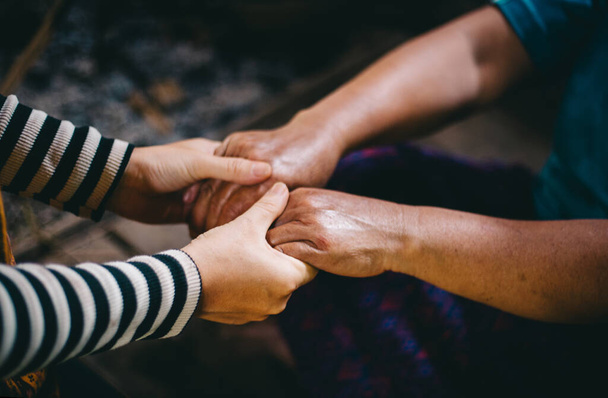Understanding the Essence of Respect
Respect is the fundamental building block of human interactions, spanning intellectual, religious, and cultural divides. It’s a universal idea that promotes understanding, empathy, and collaboration. In a world where differences and opinions frequently divide people, respect acts as a unifying factor by enabling us to acknowledge the inherent value and dignity of every person. It’s not merely a courtesy or politeness but a genuine acknowledgement of human nature and the humanity in each of us.
Here we will uncover the transformative power of respect in various aspects of life. You will learn that respect is more than just a virtue—it’s a force for good, influencing everything from personal development and accomplishment to building strong relationships.

The Advantages of Respect in Our Everyday Lives
Respect is a real force that improves our daily lives in a variety of ways; it is not just an abstract idea. Its primary advantage is that it fosters an environment that is inclusive and caring. In our communities, businesses, and families, a respectful culture fosters a secure environment where people are respected and heard. Consequently, a higher sense of belonging, inventiveness, and creativity are encouraged in this favorable atmosphere. People are more inclined to collaborate successfully and freely share their opinions when they are valued, which boosts output and creates a happy, peaceful work climate.
Furthermore, a solid foundation of long-lasting, healthy relationships is respect. It functions as the glue that holds families, friends, and couples together. Respect is the cornerstone of emotional intimacy, communication, and trust in close relationships. It creates the foundation for loyalty, understanding, and support in friendships. Respect in family dynamics makes ensuring that disagreements are settled amicably and compassionately rather than antagonistically. By treating each other with respect, we create relationships that stand the test of time and add meaningful connections to our lives.
Furthermore, respect for others has a profound impact on personal growth and self-esteem. When we treat ourselves with respect, we set the stage for self-improvement and development. This means acknowledging our own needs, boundaries, and aspirations. It means understanding that self-compassion is not selfishness but a vital component of overall well-being. In essence, respect for oneself is the springboard from which we launch our journeys toward self-fulfilment and a more authentic, meaningful life.

Self-Respect: An Essential Element of a Happy Life
It’s easy to overlook the value of self-respect in the midst of the chaos of life’s responsibilities and the cacophony of outside expectations. However, self-respect is a necessary component of living a life that is genuinely meaningful. It serves as the foundation for your mental stability, feeling of value, and general well-being. You start a path of self-awareness and empowerment when you treat yourself with the same respect and care that you give to others.
Self-respect is realizing your inherent worth as a person; it has nothing to do with conceit or narcissism. It entails establishing sound boundaries, placing self-care first, and making decisions that are consistent with your goals and basic beliefs. Respecting oneself makes it easier for you to overcome obstacles in life, get back up after failures, and tenaciously pursue your goals.
Furthermore, self-respect fuels the flames of self-esteem and confidence. It’s the mirror through which you see your own potential and strengths. Embracing your uniqueness and learning from your imperfections become possible when you hold yourself in high regard. As you cultivate self-respect, you’ll find that you’re more resilient, better equipped to handle criticism, and more willing to take calculated risks in pursuit of your goals. In essence, respecting yourself is the cornerstone of a fulfilling and authentic life journey.
Relationship Respect: How to Detect Its Presence
“Appreciation is a wonderful thing: it makes what is excellent in others belong to us as well”
–Voltaire
Respect is the thread that ties the complex fabric of human connections together. However, how can we tell if our relationships with others are respectful? Our communication style is one important determinant. Open communication, empathy, and active listening are traits of respectful partnerships. Individuals truly appreciate one another’s viewpoints and emotions, attempting to comprehend instead of passing judgment. If you discover that there is not this honest and compassionate interchange in your relationships, it can be an indication that respect has to be developed.
The existence of limits is another crucial factor to take into account. Mutual knowledge and consent on personal boundaries are the cornerstones of healthy relationships. These limits are recommendations designed to make sure that both parties feel safe and comfortable, not walls that are too tight.
Both sides voluntarily respect these boundaries when there is no breach of respect. In order to foster a more respectful and healthy relationship, it is imperative that you address any feelings of boundary violations or persistent disdain for others’ rights.The existence of limits is another crucial factor to take into account.
Mutual knowledge and consent on personal boundaries are the cornerstones of healthy relationships. These limits are recommendations designed to make sure that both parties feel safe and comfortable, not walls that are too tight. Both sides voluntarily respect these boundaries when there is no breach of respect. In order to foster a more respectful and healthy relationship, it is imperative that you address any feelings of boundary violations or persistent disdain for others’ rights.
Respect also shows in how disputes and confrontations are resolved. Conflicts are not viewed as arenas for power struggles but rather as chances for mutual understanding and growth in respectful partnerships. Positive communication demonstrates that compromise and respect are valued above animosity and finger-pointing.
If disagreements frequently turn into bitter disputes or unsolved tensions, it is essential to evaluate how respectful things are in that partnership and look into ways to make it right.

Respect and Achievement: The Unexpected Link
Although it may not be evident right away, respect and success are strongly correlated. Respect may be a strong motivator for both professional and personal success, not just a polite social phrase. Respect is one of the things that makes cooperation and teamwork possible. Employees are more likely to cooperate, communicate well, exchange ideas, and work peacefully toward shared objectives in an environment where respect is the norm. Success-critical factors like greater productivity and creativity are frequently the result of this combination.
Additionally, leadership and management are crucially dependent on respect. Proficient leaders recognize that honoring the skills, viewpoints, and personal experiences of their team members is not only morally right but also extremely tactical. Employee motivation, engagement, and loyalty all increase when they are treated with respect, which eventually makes the company more successful and productive. It is simpler to accomplish goals and form productive teams when respected leaders provide constructive criticism, foster loyalty, and inspire trust.
Respect also fosters stronger connections, useful networks, and partnerships, all of which can contribute to personal success. Respecting other people makes a good first impression that may lead to future chances. Making a name for yourself as a courteous person will help you go up the success ladder in any sector, be it academia, entrepreneurship, or any other. We see from this unexpected association between respect and achievement that respect not only improves our relationships but also may be a powerful ally in achieving our goals.
Respect and Empathy: Considering Other People’s Point of View
Respect and empathy have a complex, mutually beneficial relationship that is vital to our relationships with other people. Empathy is the capacity to truly comprehend and share the thoughts, feelings, and diverse viewpoints of another individual. It is frequently thought of as the emotional equivalent of respect. Empathy is the highest level of respect that we can exhibit.
By putting ourselves in another person’s shoes, we may genuinely understand their experiences and feelings and see the world from their perspective. It is an act of acknowledging that others are human at their core, just like respect is. Respecting one another and being empathetic shows others that we appreciate and acknowledge their opinions and feelings, which is fundamental to what it is to be respected.
Furthermore, empathy serves as a link that allows us to communicate with people more deeply. It promotes sincere understanding and connections, both of which are essential for developing polite interpersonal relationships. Respect can grow in an atmosphere where there is open communication and trust established by showing empathy and understanding for others’ viewpoints. Fundamentally, respect and empathy are entwined, and when combined, they serve as the cornerstone of fulfilling and happy interpersonal relationships.

Instilling Respect: Developing Upcoming Generations
Respect-building in children is a fundamental duty of parents, teachers, and society at large. It is essential to developing kind, sympathetic, and socially conscious people who will benefit both their local communities and the larger globe. Teaching respect involves more than just teaching manners and etiquette; it also entails developing a profound understanding of each person’s intrinsic value and dignity.
The best way to teach respect is to demonstrate it. Kids pick up knowledge by watching how peers and adults behave. Children are more likely to internalize and implement the value of respect when they witness adults acting with it in their relationships. Adults may provide children concrete examples of how to treat others with kindness, justice, and empathy by modeling respectful behavior.
Institutions of higher learning are also essential for teaching respect. Respect can be ingrained in school regulations and curricula to foster a respectful behavior culture where kids learn the value of inclusiveness, tolerance, and understanding. These skills go beyond the classroom, enabling kids to grow up and negotiate the varied and linked world they will face. By instilling respect in children from an early age, we provide the next generation with the means to create societies that are more inclusive and harmonious.
Cultivating Respect for a Better World
Respect is essential for fostering success, happiness, and solid relationships; it is not just a social grace. It is the unifying factor that makes peaceful communities and satisfying relationships possible. Fundamentally, respect is the basis for compassion, empathy, and successful communication. It is both the driver for constructive change and the antidote to bullying, conflict, and discrimination. Respecting one another and ourselves creates the foundation for healthy interpersonal interactions, personal development, and the welfare of society.
Let us not forget that respect is the glue that holds us together, the bridge that connects us, and the compass that points us in the direction of a better, more compassionate future in a world that is too frequently characterized by division and strife. We make significant progress toward building a society in which every voice is heard, every individual is respected, and every heart is moved by the transformational power of respect as we develop respect within ourselves and in our communities.




